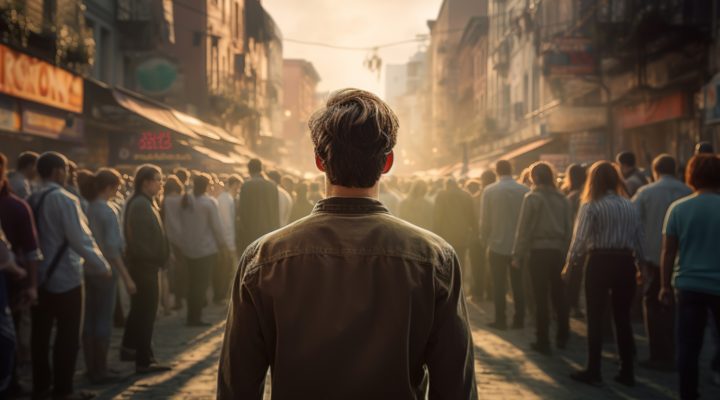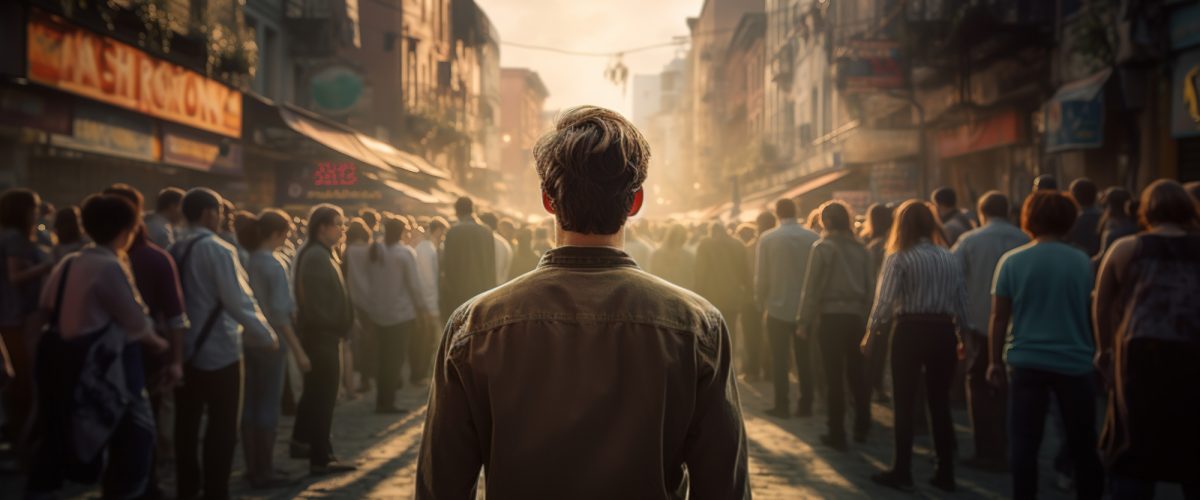“At this moment in American religious and political life, what question should we let disturb us and keep us up all night?”
That’s the query Tripp Fuller put to Corey Walker and me at the end of a two-hour Homebrewed Christianity podcast March 14. Why didn’t he just suggest we summarize the nature of God, the world and other things? But this is no laughing matter. Tripp’s question haunts me still.
The Homebrewed podcast, conducted at Lot 63, an accommodating new pub in the Old Salem historic district in Winston-Salem, was advertised as providing “perspectives on the role of religion in shaping political landscapes, the search for meaning in turbulent times, and the impact of tribal identities on our society.” No mean task.
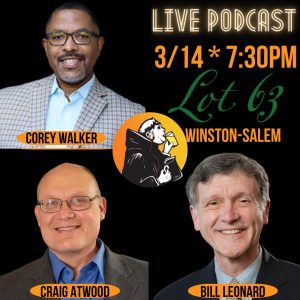 Fuller, nationally known theologian and Homebrewed podcaster entrepreneur, invited Corey Walker, dean of the Wake Forest University School of Divinity; Craig Atwood, chair of Moravian theology at Moravian Theological Seminary; minister/musician Kyle Caudle; and me for a conversation that included a live audience composed of a decidedly Moravian majority.
Fuller, nationally known theologian and Homebrewed podcaster entrepreneur, invited Corey Walker, dean of the Wake Forest University School of Divinity; Craig Atwood, chair of Moravian theology at Moravian Theological Seminary; minister/musician Kyle Caudle; and me for a conversation that included a live audience composed of a decidedly Moravian majority.
The evening began with Kyle’s wonderful music, following which Tripp beckoned Craig Atwood to the microphone, inquiring as to the professor’s assessment of the 18th-century Pietist, Count Nicholas von Zinzendorf, protector of a group of Moravians who sought shelter on his estate in 1722. Craig rose to the occasion, recounting Zinzendorf’s varied theological/spiritual eccentricities, especially his “gendered” Christology, a theory so fascinating that I tracked down one of Atwood’s articles on the topic.
In it, Craig writes that, for Zinzendorf, “circumcision indicates that Jesus was fully man, but … (his crucifixion) side-wound identifies Jesus as a nourishing mother.” Thus Jesus was fully human and divine, male and female, an androgenous metaphor for all humanity. Craig added that for the count, the Holy Spirit was perceived as female! (That’s not where this BNG essay is headed, but Zinzendorf’s ideas are too captivating to omit.)
Kyle sang again, then Corey and I were invited to the mics, where Tripp carried us into issues related to the role of religion across “political landscapes” in “turbulent times.” We responded with questions related to race, Christian nationalism, evangelicalism and declines sweeping American religious communities, each impacting and impacted by politics.
As the podcast moved toward closure, Tripp raised what became for me the most powerful topic of the evening: “At this moment in American religious and political life, what question should we let disturb us and keep us up all night?”
Suddenly I heard myself confessing my consistent loss of sleep over what I/we will do if autocracy prevails following the results of the pending national election. What will we non-MAGA types do if that movement should capture the republic even more profoundly than it already has? Will we speak out or comply? Will we live in fear or find courage? Or will we disengage, becoming bystanders to what’s happening to others? Indeed, are we religio-political bystanders already?
My initial response to the question referenced Roger Williams and Dietrich Bonhoeffer, two historical figures who rejected the bystander mode, noting the former’s legislative exile from autocratic Colonial Massachusetts because of his views on conscience, religious liberty and non-conformity, and the latter’s powerful dissension amidst the onslaught of German National Socialism.
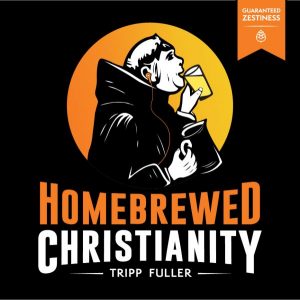 Corey expanded the discussion, reminding us that before returning to Germany, Bonhoeffer studied in New York City, where he worshiped with Blacks in Harlem, who taught him the liberating hymn, “O freedom, freedom over me. And before I’d be a slave I’d be carried to my grave and go home to my Lord and be free.”
Corey expanded the discussion, reminding us that before returning to Germany, Bonhoeffer studied in New York City, where he worshiped with Blacks in Harlem, who taught him the liberating hymn, “O freedom, freedom over me. And before I’d be a slave I’d be carried to my grave and go home to my Lord and be free.”
The podcast ended as Tripp referenced the work of scholar Victoria Barnett, who, after years of studying the responses of German citizens to National Socialist autocracy and its resulting Holocaust, concluded that the term “bystander” was not a neutral excuse but an act of participation. Tripp added that, for Barnett, the word “bystander” can be either noun or verb.
Tripp’s comments sent me to Barnett’s book Bystanders: Conscience and Complicity During the Holocaust (1999), in which she asks of bystanders, “Did they have the power to change what happened? Do dictatorships induce a kind of mass psychosis that transforms some people into brutes and others into passive marionettes?” With that sentence, Barnett carries us from 1939 to 2024!
Writing in the last year of the 20th century, she observed, “The prevention of future Holocausts may depend not upon identifying and protecting potential victims, but upon our learning — as bystanders — to respond differently to the plight of victims everywhere. If the bystander has become a modern archetype, it is because of the considerable evidence, in the final years of the 20th century, that there is really very little that distinguishes most of us from the silent bystanders of the 1930s.”
Little did she realize how such “considerable evidence” would accumulate in the first quarter of the new century.
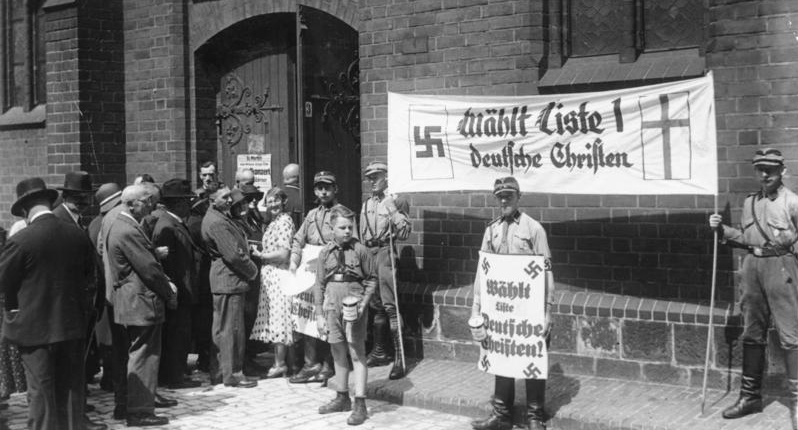
Stormtroopers holding German Christian propaganda during the Church Council elections on July 23, 1933, at St. Mary’s Church, Berlin.
Barnett’s description of the position of the German Protestant Church sounds all too familiar in America 2024. She writes: “The example of the Evangelical Church in Nazi Germany illustrates how an institution can function as a ‘bystander.’ In its efforts to preserve its autonomy and its very existence, the institutional church effectively sided with state authority. This, in turn, enabled the regime to tighten its hold on the entire society. The church’s institutional conformity and its compromises with Nazi leaders clearly influenced the viability of protest by individual Christians.”
Barnett concludes: “More critically, the church’s behavior under Nazism undermined its own moral credibility, as it acknowledged in the Stuttgart Declaration.” (The post-war German Protestant Church issued the Stuttgart Declaration of 1945 in repentance for failure to speak out against National Socialism and the Third Reich.)
Will we American Protestants be compelled to issue such a statement of repentance sooner or later?
Barnett cites sociologist Herbert Kelman’s “Violence without Moral Restraint” essay with its “three prerequisites for the erosion of moral inhibitions against violent atrocities.” Will we remain bystanders as those prerequisites occur all around us?
- “The authorization of violence.” (In 2024, a political candidate warns if he is not elected a “bloodbath” will result.)
- “The routinization of violent actions.” (In 2024, firearms remain the largest cause of death for American children.)
- “The dehumanization of victims.” (In 2024, a political candidate labels immigrants “vermin,” “animals” and “not people.”)
Those three types of moral erosion already are present in our culture. Barnett concludes: “Thus the individual conscience and will are reduced to a private matter, a response that the authoritarian state legitimizes.”
Concerning bystanders, all of us are vulnerable. Barnett writes, “Human history is filled with terrible examples of brutality, cowardice, complicity and indifference to suffering. There have always been bystanders: people in various walks of life who might have changed the course of history, had they chosen to become more actively involved.”
Those words took me straight to the New Testament, Acts 7: When Stephen told the Jewish leaders he saw the Son of Man at God’s right hand, “they put their hands over their ears and began shouting. They rushed at him and dragged him out of the city and began to stone him. His accusers took off their coats and laid them at the feet of a young man named Saul.”
As 2024 progresses, that story alone ought to wake us all up at least one night a week.
Bill Leonard is founding dean and the James and Marilyn Dunn professor of Baptist studies and church history emeritus at Wake Forest University School of Divinity in Winston-Salem, N.C. He is the author or editor of 25 books. A native Texan, he lives in Winston-Salem with his wife, Candyce, and their daughter, Stephanie.
Related articles:
Would today’s Christian nationalists exile Roger Williams — again? | Opinion by Bill Leonard
Can you hear him now? | Opinion by Mark Wingfield

